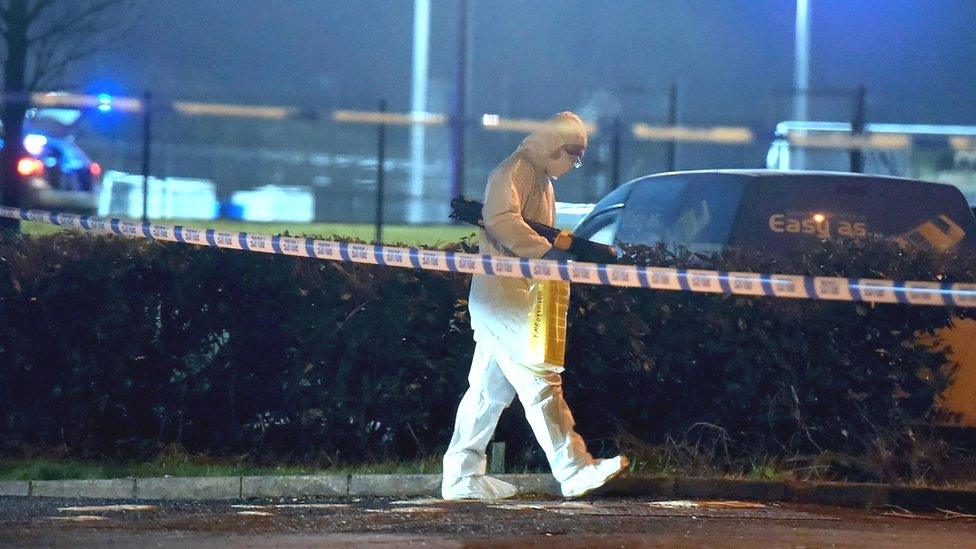Good Friday Agreement: Get Stormont up and running, Sunak tells unionists
- Published
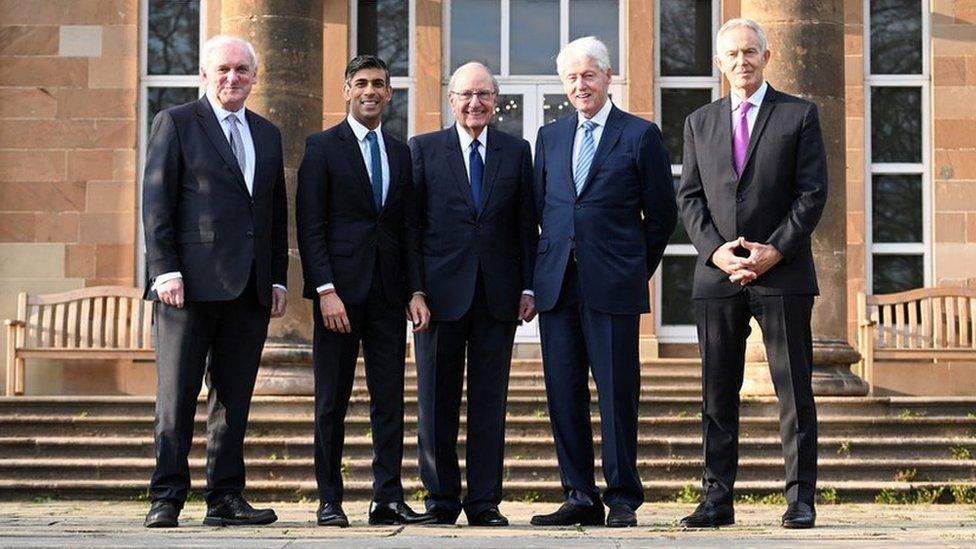
Rishi Sunak is hosting leaders from the Good Friday Agreement talks at a gala dinner at Hillsborough Castle
The prime minister has urged unionist politicians at Stormont to get power-sharing "up and running again".
Rishi Sunak gave the closing speech at a three-day event at Queen's University Belfast on Wednesday marking the agreement's 25th anniversary.
He called it a "profound concern" that power-sharing had not been in place for nine of those years.
Democratic Unionist Party (DUP) leader Sir Jeffrey Donaldson said the conference had a lack of realism.
His party has blocked the formation of an executive and the functioning of the assembly in protest against post-Brexit trading arrangements for Northern Ireland.
Mr Sunak said the collapse of the institutions "will not bolster the cause of unionism" in the long-term.
"When we look back and 25 years from now, surely we should aspire for our legacy to be nothing less than this: that the institutions have been up and running every single year," the prime minister said.
He hailed the agreement as the "extraordinary political achievement of our lifetimes".
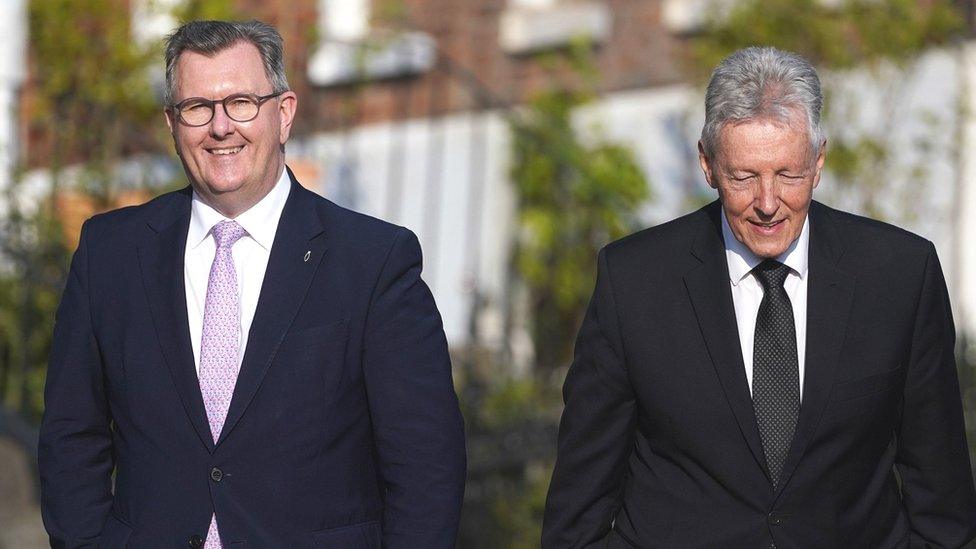
Sir Jeffrey Donaldson (left) and former DUP leader Peter Robinson attended the dinner at Hillsborough Castle
Sir Jeffrey responded: "There is a realism in London that frankly there isn't at the event at Queen's.
"A realism that we need to sort this out, that whilst we will have lots of people that will tell us what the problem is, I haven't heard anyone come forward with a solution."
'We can't go back'
Speaking on Wednesday evening at a gala dinner at Hillsborough Castle, the prime minister reflected on meeting senior detective John Caldwell in hospital last week, who is recovering after being shot in Omagh in February.
"Last week, I visited a man who has dedicated himself to building that future," Mr Sunak told the event. "A policeman, a father, a husband, a children's football coach - DCI John Caldwell.
"We sat together and talked about the society he loves and about his ordeal. He told me: 'We can't go back'."
Among those who spoke at the dinner were former British and Irish prime ministers from the 1998 talks, Sir Tony Blair and Bertie Ahern.
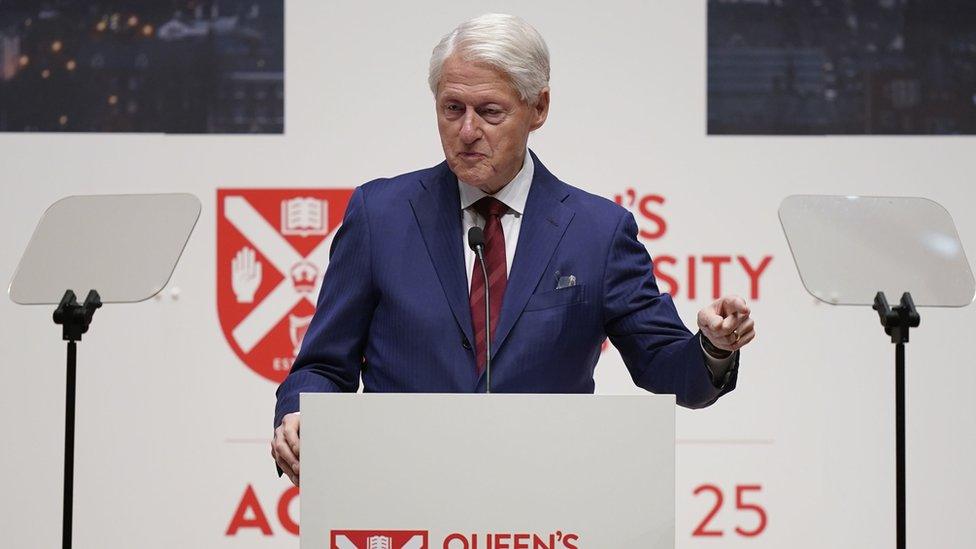
Bill Clinton urged politicians to get the "show on the road" at Stormont
Ex-US Senator George Mitchell was also in attendance and told BBC News NI it could be his last visit to Northern Ireland.
The 89-year-old, who chaired the 1998 talks, has acute leukemia.
"I've spent the last three years receiving chemotherapy, a lot of it in hospitals," he said. "My health has gone down, then up and then down again.
"I honestly don't know whether I will be back. I certainly would like to do so, but I can't be sure of that."
Former UK prime ministers Liz Truss, Boris Johnson, Theresa May were also on the guestlist for the Hillsborough Castle event, as well as the Labour Party leader, Sir Keir Starmer.
'Get the show on the road'
Earlier, former US President Bill Clinton urged local politicians to get the Stormont "show on the road" during his speech at Queen's University.
"The biggest roadblock that Brexit posed for Northern Ireland's political and economic future has been dramatically mitigated," he told the audience.
"This whole deal was never supposed to be an engine of obstruction. The agreement was never supposed to be used to make sure there could be no self-government."
Taoiseach (Irish prime minister) Leo Varadkar reiterated his government's agreement to work with the British government, as well as Stormont politicians, to make the process work across the islands.
He added that Northern Ireland works best when there is an agreed strategy.
European Commission President Ursula von der Leyen said the Good Friday Agreement leaders planted "a seed in soil previously stained with blood and tears".
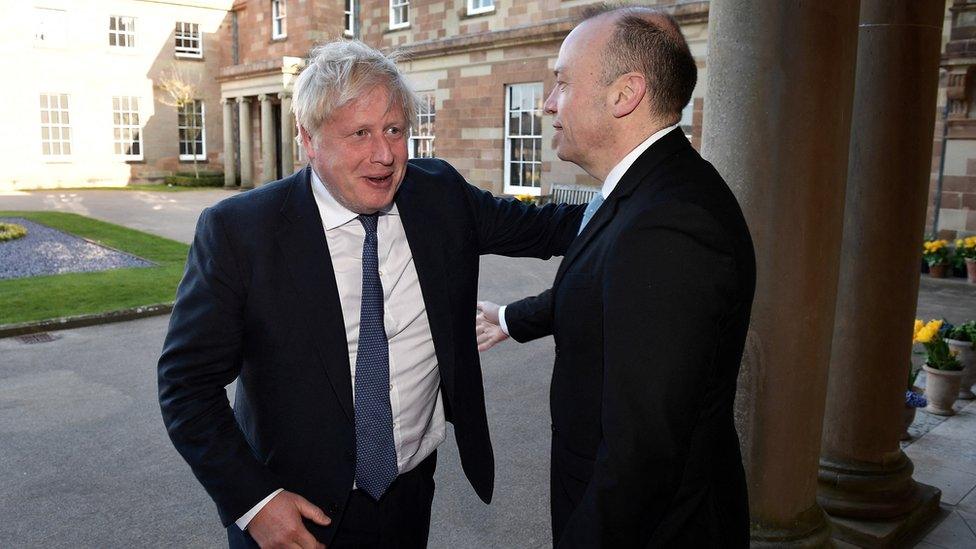
Northern Ireland Secretary Chris Heaton-Harris welcomed guests to Hillsborough Castle including former prime minister Boris Johnson
She told the conference Northern Ireland was now known as a "cool place" for Europeans to visit.
This week's events follow US President Joe Biden's visit to Northern Ireland and the Republic of Ireland last week.

What is the Good Friday Agreement?
The Good Friday or Belfast Agreement was a political deal designed to bring an end to 30 years of violent conflict known as the Troubles.
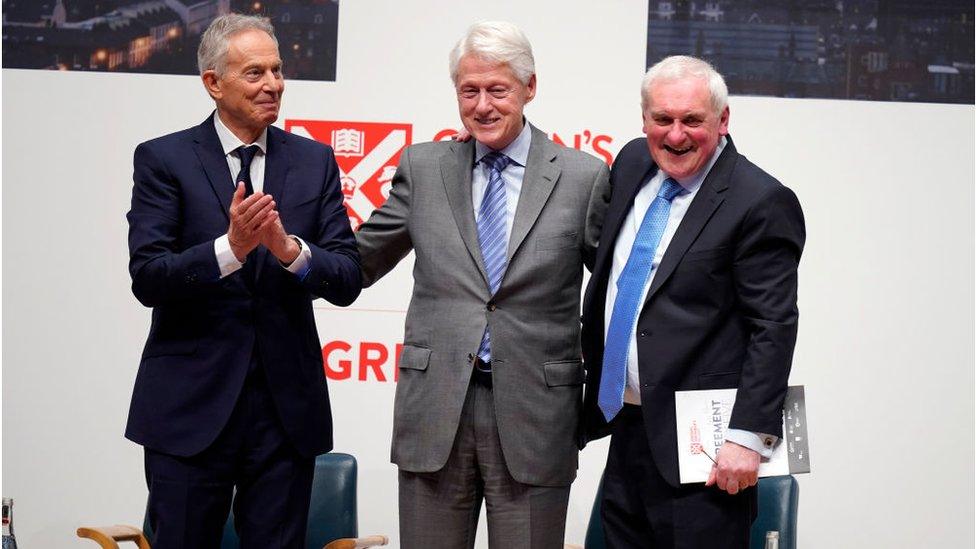
Former UK Prime Minister Tony Blair, former US President Bill Clinton and former Taoiseach Bertie Ahern at the Agreement 25 conference in Belfast
Signed on 10 April 1998 and approved by public votes in Northern Ireland and the Republic of Ireland, it is based on the idea of co-operation between communities.
It helped to set up a new government for Northern Ireland, representing both nationalists and unionists.

- Published19 April 2023
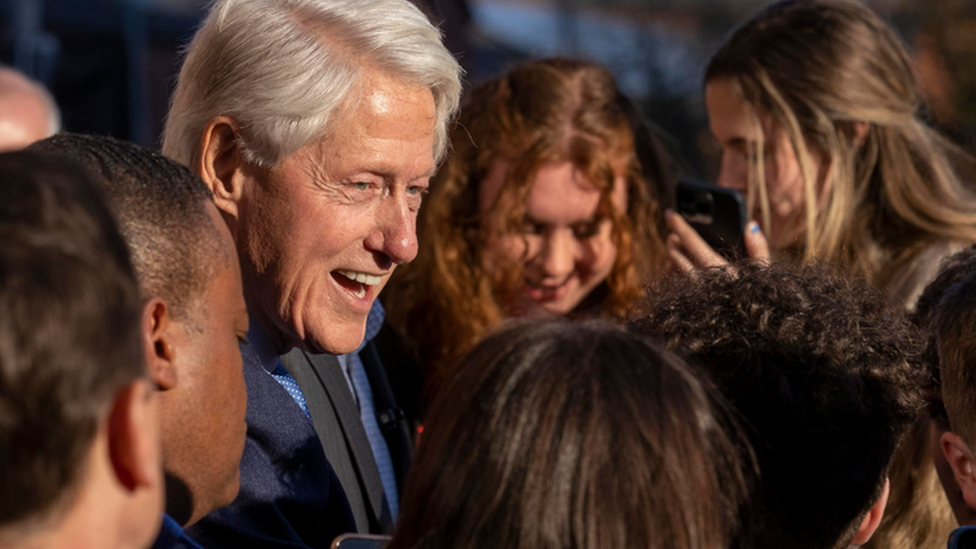
- Published12 April 2023
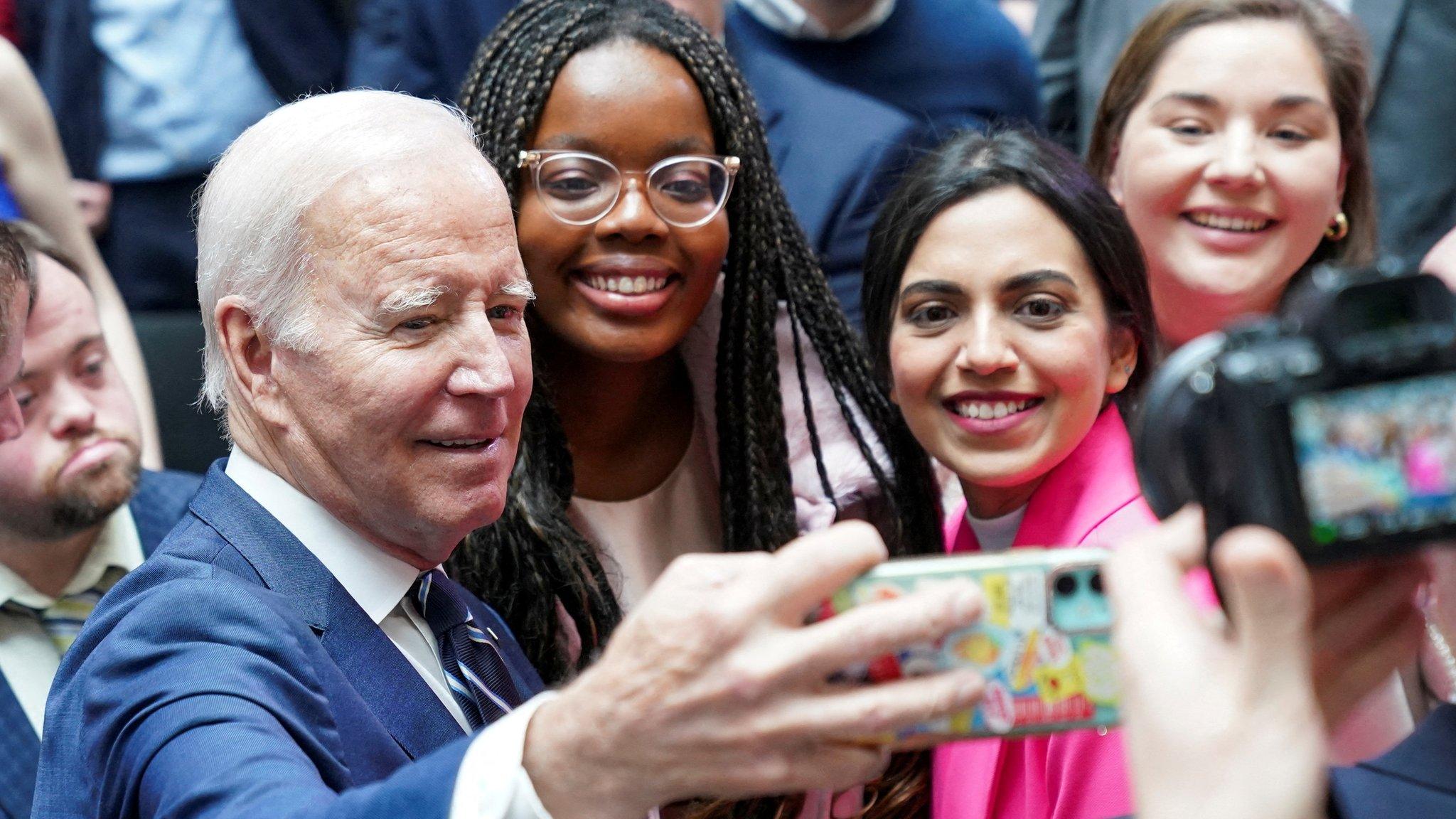
- Published9 March 2023
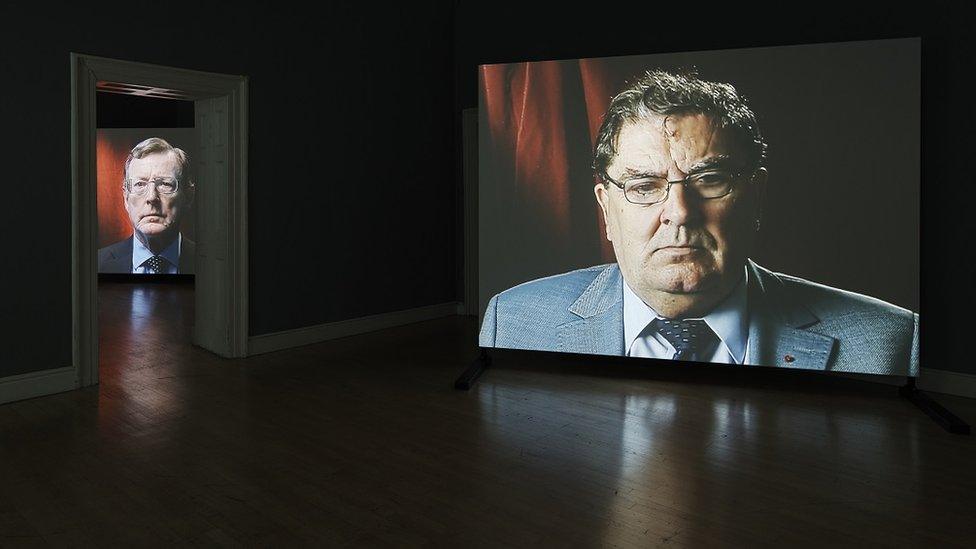
- Published16 April 2023
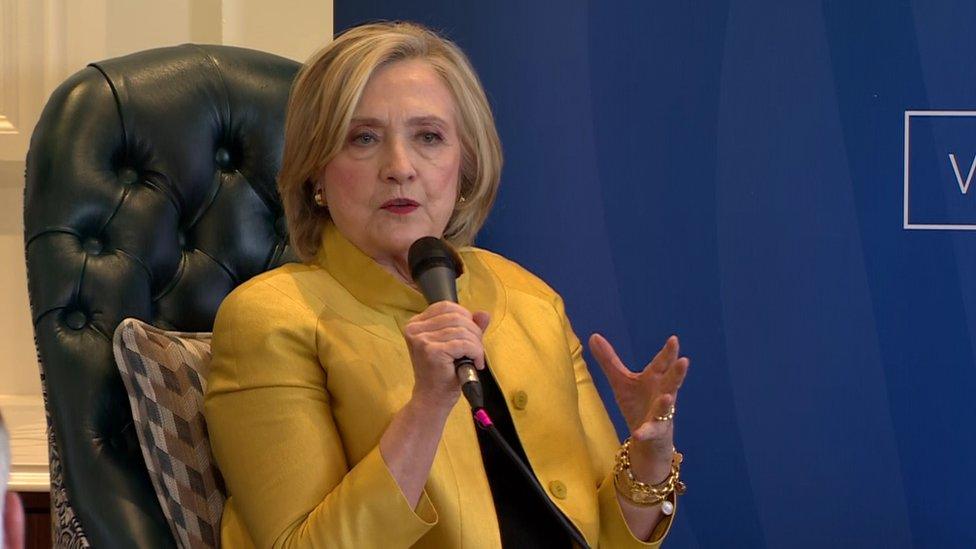
- Published16 April 2023
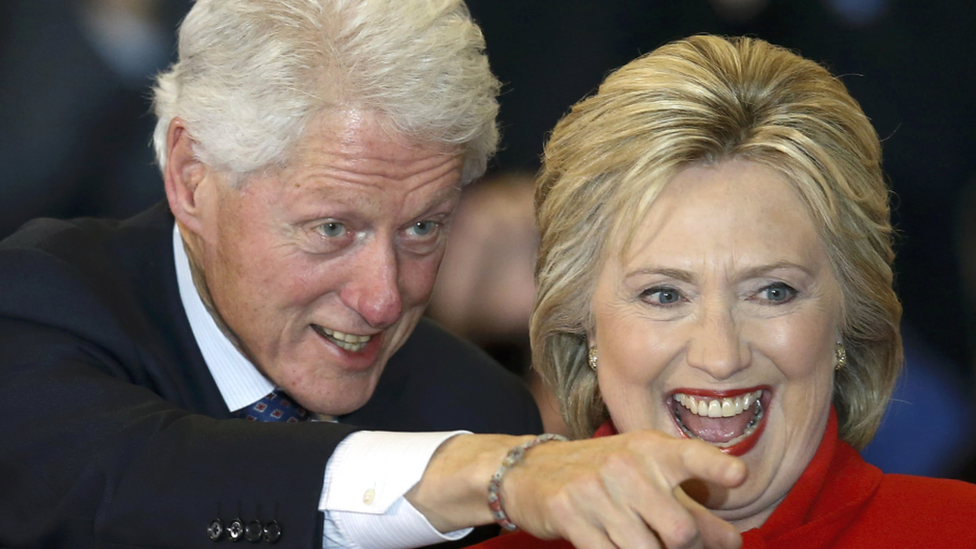
- Published22 February 2023
